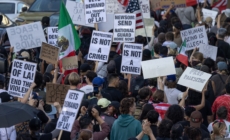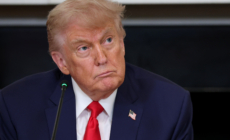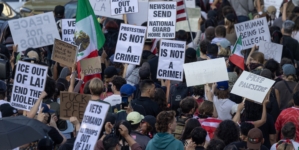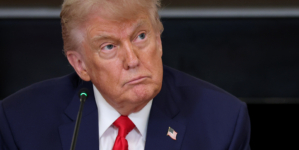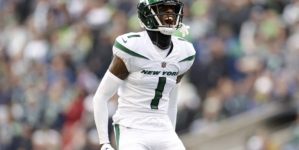-
Judge opens hearing in California challenge to Trump over L.A. deployment - 2 mins ago
-
Mamdani’s Face Was Altered in a Rejected Campaign Flier for Cuomo - 3 mins ago
-
Targeting Immigrants Won’t Make America Safer | Opinion - 19 mins ago
-
Dodger Stadium Express to run despite curfew restrictions - 43 mins ago
-
‘Jane’ Says Life With Sean ‘Diddy’ Combs Soured After Seeing Video of Cassie Assault - 47 mins ago
-
Student Loan Update: Court Documents Reveal Details of Trump Admin Plans - 54 mins ago
-
State sues SoCal real estate tycoon alleging widespread tenant exploitation - about 1 hour ago
-
Jets’ Sauce Gardner Speaks Out About Future in New York - about 1 hour ago
-
How the 2020 George Floyd Protests Are Haunting Democrats in 2025 - 2 hours ago
-
Major Platforms Including Spotify, Google, OpenAI Suffer Outage - 2 hours ago
Austria Has Lots of Guns, Little Gun Violence, and New Questions
Some of the most popular chat threads on an online forum for weapons enthusiasts in Austria dissect the latest releases in firearms accessories, like silencers and targeting sights, or review the country’s shooting ranges. On Tuesday afternoon, a relatively sleepy discussion on “Gun law/reform attempts” stirred to life.
“A new era regarding gun ownership is beginning,” a user with the screen name AUG-Andy wrote in German on the site, “Pulverdampf.” “It’s a no-brainer now, especially since the majority of the population is certainly behind it. The shooting happened at a bad time. Now all that helps is prayer.”
“The shooting” in question shocked Austria on Tuesday morning. A former student at a high school in Graz, Austria’s second-largest city, opened fire with a handgun and a shotgun on campus. He killed or mortally wounded at least 10 people, the authorities said, before apparently killing himself in a school bathroom. It was Austria’s deadliest school shooting in memory, and an unusual case of a mass-casualty attack on schoolchildren in Europe.
It was also a jolt to a country with a rare gun culture — in comparison with many of its western European neighbors, but also with the United States.
But that may not lead to the sort of sweeping changes to gun laws that many online commentators fear.
Austrians have the 12th-highest per-person gun ownership rate in the world, according to the Small Arms Survey, an independent research group based in Geneva. They also have relatively low rates of gun violence.
As a share of the population, there are fewer deaths from guns each year in Austria than in Canada, Israel and most of Scandinavia, according to statistics reported by the Commonwealth Fund. The U.S. rate is almost 17 times that in Austria.
Many Austrians celebrate their firearms ownership laws, which are more liberal than most European nations’ but also require prospective owners to meet stringent requirements before purchasing a gun.
Accordingly, in the immediate aftermath of the attack, few prominent figures called for wholesale changes to those laws.
That is a contrast with the United States, where school shootings are far more common, and where Democratic leaders and advocacy groups focused on gun violence often call for stricter gun laws in attacks’ aftermath. On a federal level, those calls have rarely yielded much change in policy.
Across Europe, though, past school shootings have often brought stringent restrictions on gun ownership. Germany tightened already-strict regulations after school shootings in 2002 and 2009. After a 13-year-old embarked on a massacre in a Belgrade school in 2023, Serbia’s president vowed to push for “almost complete disarmament” of the population, including an amnesty program for people to turn in illegal weapons.
One Austrian political leader pushed for something akin to that Tuesday evening, after the shooting. That was Graz’s mayor, Elke Kahr, of the Communist Party, who told the broadcaster ORF: “I think that gun licenses are issued too quickly. From my point of view, for security and protection only our executive authorities should carry weapon, not private individuals.”
No federal officials appear to have said anything close to that. On Tuesday, the federal official who seemed to go farthest toward endorsing law changes was Franz Ruf, director general for public security at the federal Ministry of the Interior. He told ORF that in light of a mass shooting, “We must examine whether the legal requirements are incomplete and whether they need to be revised.”
The country’s Green Party, which is not in its governing coalition, has been pushing to toughen gun laws for years, a frequent topic on the online weapons forum.
The laws are already much stricter than in the United States. The Waffengesetz, as Austria’s seminal gun ownership requirements are called, heavily restrict ownership of certain military-grade weapons. They allow ownership of handguns and certain types of rifles and shotguns only if a prospective buyer obtains a federal permit.
The permitting process includes meeting an age minimum, passing background checks and a psychological test, demonstrating knowledge of how to safely operate a gun and citing a good reason to own one, usually for hunting or sport shooting.
The police said that the gunman in the Graz attack had passed these requirements, and that he was legally allowed to own the weapons he used in the shooting.
Lawmakers tightened Austria’s gun laws in the late 1990s to comport with European Union regulations. The result, researchers found in a 2018 study, was a decade-long decline in suicide and homicide rates involving firearms. But the rates began to increase after the global financial crisis of 2008, when Austrians began to buy more guns, they found.
Gun shops were open across Ganz on Wednesday, though no employees wanted to talk on the record about the shooting. Some gun enthusiasts were trying to make sense of what had transpired the day before.
Alois Stampfl from the Graz Police Sports Association said in a telephone interview that his club mates were mourning.
“I’m lost for words,” he said.
In the wake of the attack, he added, the club has blocked its shooting range.



